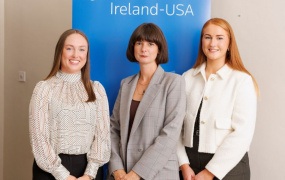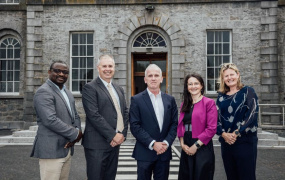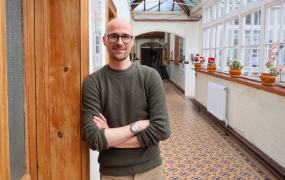Search
Use search box below to look for information on the Mary Immaculate College website. There are some helpful links to common search queries above it. Keep an eye out for the 'Ask a Question' function on certain pages and sections where you can pose specific queries to MIC staff (and see previous questions and answers underneath the question box).
MIC is a registered Charity and operates under governance structures set out in a number of regulatory instruments. Visit this page to learn about the various bodies involved in the governance of the College.
The MIC 2023-24 Annual Report - Governance & Strategy
Discover Government of Ireland Information. Learn how to use gov.ie to access information and links to all government departments, the Dail and the Taoiseach. It includes the following websites: Houses of the Oireachtas, Iris Oifigiuil or Official Gazette, and Irish Statute Book.
Discover the Global Researchers Advancing Catholic Education (G.R.A.C.E.) project, which is an international research-based partnership between MIC Limerick, Boston College, United States, the University of Notre Dame Fremantle, Australia, St Mary’s University in Twickenham, London; University of Glasgow, Edith Cowan University and the International Office for Catholic Education (OIEC).
The Graduate Certificate in Academic Practice is an innovative and flexible professional development programme for those who teach in Higher Education. This fully online/blended programme aims to encourage and promote best practice in Higher Education teaching, learning and assessment that empowers staff and students to be responsive to the changing needs of the Higher Education landscape and broader society.
The Graduate Certificate/Graduate Diploma/MA in Autism Studies are accredited by the University of Limerick and are delivered by an award-winning partnership ('Best Community Academic Collaboration' at the Education Awards 2024) between Mary Immaculate College and Middletown Centre for Autism. They are taught by experienced professionals from both MIC and Middletown Centre for Autism using both online and face-to-face teaching methods. Both agencies recognise the need for high quality graduate professional development in autism in Ireland/Northern Ireland and both the Graduate Certificate in Autism Studies and Graduate Diploma in Autism Studies will meet this need.
Learn more about the Graduate Certificate/Diploma/M Ed in Digital Leadership in Education programme, which is designed for those working in education to support them to lead, design, implement and evaluate an integrated and innovative model of digital learning within their educational contexts.
The innovative Graduate Certificate in Middle Leadership and Mentoring in Primary and Post-Primary Settings is a one-year, part-time blended programme providing an academic qualification for teachers in professional studies and will be offered by and located at MIC’s Thurles campus. Year 2 offers opportunities to progress to Master's level. Endorsed by the Centre for School Leadership and designed to suit teachers’ professional lives, the programme will act as both a challenge and a support to those interested in middle leadership in our schools.
The Graduate Diploma in Adult and Further Education commences in September of each year and is available (1) on a full-time basis over two semesters or (2) part-time over three semesters. The programme is recognised by the Teaching Council as a professional teaching qualification for the Further Education sector. It includes modules on the theory and practice of education and lifelong learning (psychological, philosophical, historical and sociological perspectives), teaching, learning, curriculum planning, assessment and a substantial teaching placement.
Learn how MIC has a strong international reputation for research in the area of Applied Linguistics, especially in its sub-field of Corpus Linguistics, and it has a vibrant doctoral level research profile within its Inter-Varietal Applied Corpus Studies research centre.
The aim of this one-year postgraduate programme in Inclusive Special Education is to provide substantial theoretical and practical continuing professional development to teachers working with students with Special Educational Needs (SEN). From the broad perspective of inclusive practice, and general special education policy and practice in Ireland, the programme provides specific inputs in assessment, language, literacy, mathematics, social, emotional and behavioural content areas as well as incorporating ICT at all levels to support instruction and learning.
The Graduate Diploma in Mentoring and Leadership in Schools (International) degree is level 9 on the National Framework of Qualifications (NFQ) awarded by University of Limerick.
This course may be offered in two delivery formats: face-to-face on campus or blended (a combination of face-to-face and online delivery).
What are the plans for Graduation this academic year? Learn more about MIC Autumn Conferring Ceremonies scheduled to take place on campus.
There was much celebration at MIC this week as almost 1,500 students from 30 counties, 25 countries and 5 continents were conferred with academic awards across the College’s 30+ undergraduate and postgraduate programmes in Education and the Liberal Arts. Members of MIC's Alumni community prepared special video messages to celebrate and congratulate the Class of 2022.










